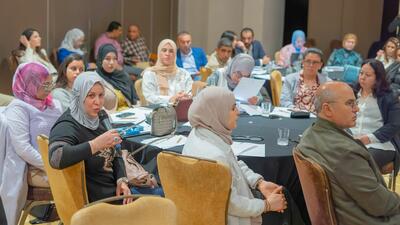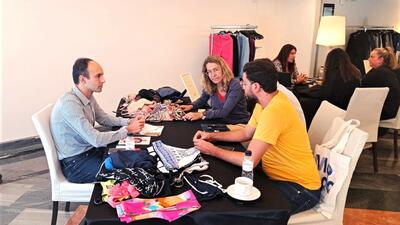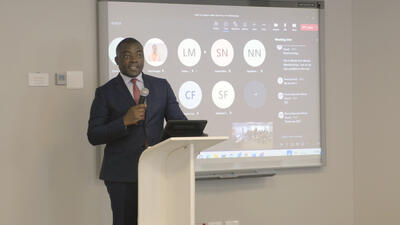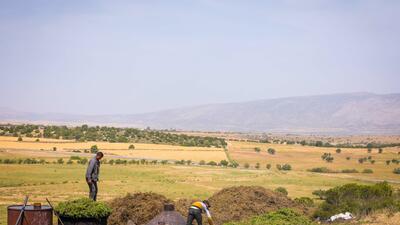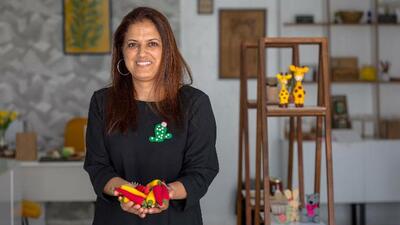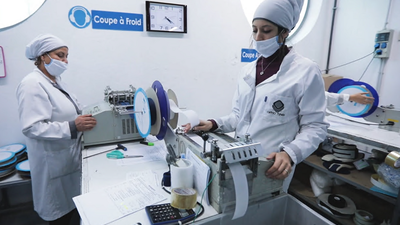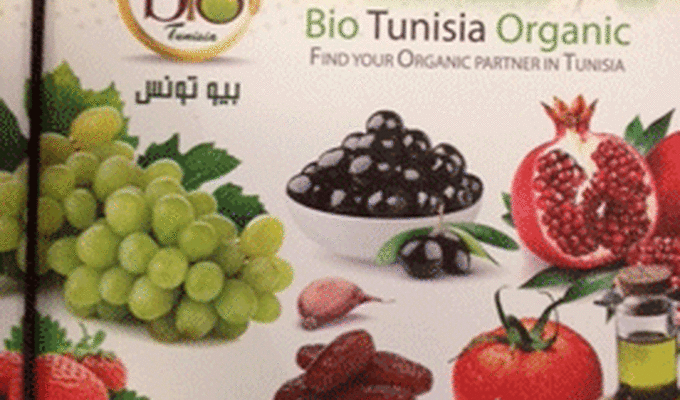
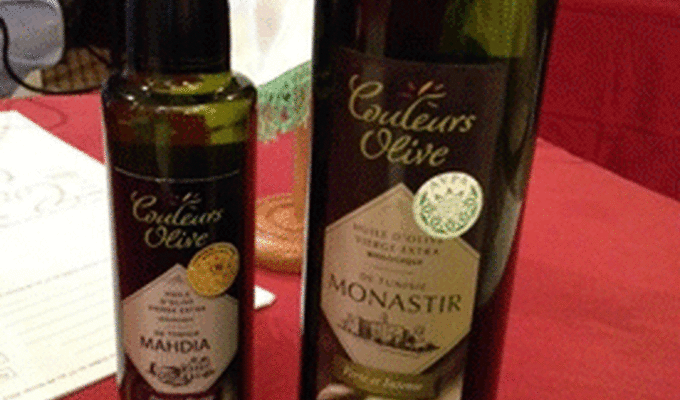


tunisian organic-food exporters take aim at Gulf market (en)
Starting a revolution is one thing, ensuring that it leads to change for good is another. While most Tunisians are preoccupied in ensuring that the uprising that they started in December 2010 and later spread to the wider Arab world, there are different ways through which they seek to achieve lasting change for the better. For many, building businesses that aim at exporting products from Tunisia’s agriculture sector is their way of contributing to the revolution and at the same time create job opportunities for the country’s population.
That is why ITC’s Enhancing Arab Capacity for Trade programme (EnACT) is working with the Tunisian Ministry of Trade and Handicrafts, the Ministry of Agriculture and the Tunisian Export Development Office (CEPEX) to support Tunisian small and medium-sized businesses (SMEs) in the country’s organic-food sector, and to help them enter the Gulf Cooperation Countries (GCC) market.
One recent example of the effort help promote Tunisian organic produce abroad is the Tunisia Organic Day, which was held in Dubai, United Arab Emirates (UAE), on 28 May. There Tunisian producers had the chance to showcase their products to potential clients from across the Gulf market and to develop future business partnerships.
A growing exporter of organic food products, the main markets for Tunisian products is France, Germany, Italy and the United States. To help exporters broaden their access to other markets, the Tunisia Organic Day event in Dubai was tailor-made so as to help SME’s take advantage of new export destinations. The participating Tunisian companies were all selected for the quality of their products, but also because of their expressed interest in entering the Gulf market.
At the Tunisia Organic Day, each main food sector is represented by one company, which included producers of olive oil, olive past, breakfast cereals, organic fruit vinegars, pasta and traditional pastries. On display were also Tunisia’s many fruit and vegetables that have already acquired fame across the Mediterranean and the Arab world for their rich taste: dates, herbs, round tomatoes, cherry tomatoes, melons and more. All produced according to organic standards.
According to the World Bank, the UAE has a population of more than eight million, of which a large majority is foreign expatriates from across the world (most live in Dubai). It also has a per capita gross domestic product that is on par with most developed countries. In addition, while most consumers in the UAE are somewhat familiar with organic products, the sector remains is still largely underdeveloped. This means that it is possible for SME’s to play a pioneering role in developing the sector.
But for the Tunisian organic producers that gain access to the Dubai market, it will be about much more than just trading with the people living in the UAE. Dubai is also a hub for trade for the broader region. Buyers from the other Gulf countries, for example, and in particular many of the 28-million-strong Saudi population, tend to shop in Dubai.
Although the Tunisia Organic Day event was the first time Tunisian organic producers had actively and collectively sought to gain access to the Gulf market, success came quickly. “Specialty distributors for organic stores such as Organic Foods & Café [a Dubai-based organic supermarket and café chain], which has a regional reach into Bahrain and Qatar, as well as high-end restaurants distributors and supermarkets in Dubai showed a particular interest in the Tunisian products and sales were made during this first contact,” said Ms Raja Benzarti of the Tunisian Ministry of Agriculture’s general-directorate of organic agriculture.
ICT’s EnACT programme, through the provision of technical consulting, has been working for the past year in preparing the participating companies to ensure a successful event. While the event opened doors for Tunisian producers in the Gulf market, it also created new opportunities domestically. “For ease of doing business, several SMEs that participated at the event are now considering creating a sales consortium back home. This is because a number of buyers in Dubai expressed interest in purchasing larger quantities, but also because there is a preference for dealing with one larger selling-entity in Tunisia for all these products, ” said Torek Farhadi, Regional Coordinator for ICT’s EnACT programme.
About EnAct
ICT’s EnACT programme is financed by the Canadian International Development Agency (CIDA), and its focus in Tunisia is to work with sectors that are most likely to create employment for women and youth outside the country’s largest cities.
Learn more about Tunisian organic produce.
Learn more about ITC’s EnAct programme.





